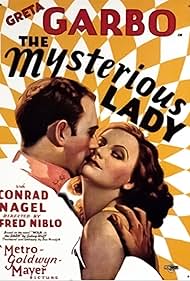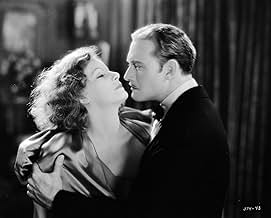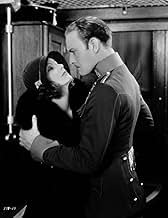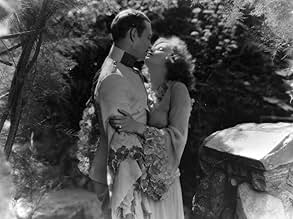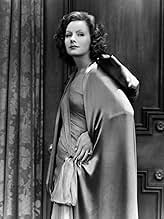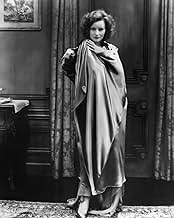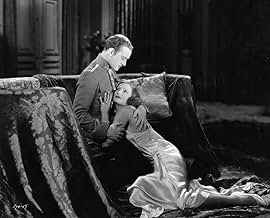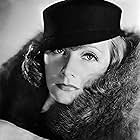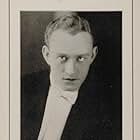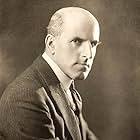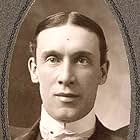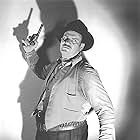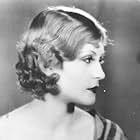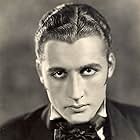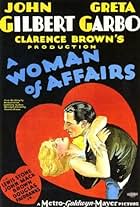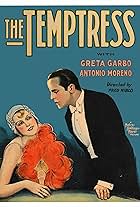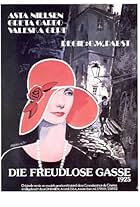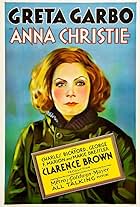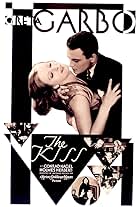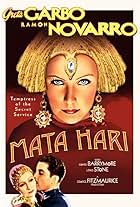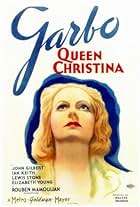IMDb RATING
7.2/10
1.5K
YOUR RATING
An attractive Russian spy seduces an Austrian officer in order to get some important plans, but when she actually falls in love with him, both of them are placed in a dangerous situation.An attractive Russian spy seduces an Austrian officer in order to get some important plans, but when she actually falls in love with him, both of them are placed in a dangerous situation.An attractive Russian spy seduces an Austrian officer in order to get some important plans, but when she actually falls in love with him, both of them are placed in a dangerous situation.
- Awards
- 1 win
Symona Boniface
- Party Guest
- (uncredited)
Alfonso Corelli
- Violin Player
- (uncredited)
Geraldine Dvorak
- Party Guest
- (uncredited)
Sydney Jarvis
- Prison Guard
- (uncredited)
William H. O'Brien
- Cafe Waiter Serving Wine
- (uncredited)
Russ Powell
- Carriage Driver
- (uncredited)
Youcca Troubetzkov
- Russian
- (uncredited)
Victor Young
- Scarpia in 'Tosca'
- (uncredited)
Storyline
Did you know
- TriviaDebut of actress Geraldine Dvorak.
- GoofsIt was actually the German intelligence chief, Redl, who gave the Schlieffen plan to the Russians, not a female spy.
- Quotes
Title Card: Vienna before the war - city of love and laughter - living gayly to the music of the waltz and the opera - !
- Alternate versionsIn the TCM version, the final scenes involves Tania and a male character named Lucien, with the dialog cards in Russian.
- ConnectionsFeatured in Hollywood (1980)
Featured review
Have you ever been touched by the glimpse of perfection on screen? I suppose not if you are a buff of 'modern' thrillers that boast technical effects, but, unfortunately, lack any basics of subtlety. Anyone who longs for charm of good old days should decide to see at least one Garbo movie. And it does not have to be her top classic film like NINOTCHKA where Garbo memorably laughs, ANNA Christie where she adorably reveals the sound of her voice, or even GRAND HOTEL where she memorably says her iconic words "I want to be alone", but THE MYSTERIOUS LADY where she so brilliantly seduces. But what is, in fact, THE MYSTERIOUS LADY after all these years except for the fact it is one of the last silents Garbo made.
In spite of the fact that THE MYSTERIOUS LADY is made by the talented yet underrated director of silent BEN HUR (1925), Fred Niblo, and based upon the novel WAR IN THE DARK by Ludwig Wolff, that is, for many, not at all the movie's strongest point. The content of a spy's determination between the choice of serving the country in lie or the choice of offering a genuine love to a man is memorably resembled in Garbo's famous talkie MATA HARI (1931). The entire investigation depicted in the film also appears to be of little importance. The real charm of THE MYSTERIOUS LADY lies in its stunning cinematography by great William H. Daniels, impressive lighting, memorable moments and, foremost, excellent cast...
...and at this moment, whilst analyzing the film from this perspective, we get Greta Garbo, one of, if not, the best actress that cinema could ever have, neither Garbo alone nor with her beloved John Gilbert but with equally lovable Conrad Nagel. The couple of Tania, a seductive spy, and Karl, a lovable captain, of a singer and a pianist are excellent. While Nagel crafts the role skillfully as a lover and a captain experiencing bitter military career, Garbo uses her two most powerful weapons: charm and talent. She seduces like in MATA HARI, and, moreover, she seduces silently and ... mysteriously.
Their scenes are, symbolically, based upon hand and mouth (two body parts which resemble the subtle desire), upon act and affection, giving and taking. The moment worth particular attention is, perhaps the most famous scene of this movie, when Garbo lights up the candles and the camera is directed towards her face. And here, again, great thanks to William H. Daniels who photographed Garbo in an extraordinarily subtle manner. Another memorable scene is the one at the theater: how lovely it is to see the Austrian captain whose blood runs faster in veins at the sight of a delicious Russian beauty. I was mesmerized by the magic stream sequence where I found the very essence of silent picture: the delicacy it portrays and the visual experience it offers.
Among the supporting cast, Gustav Von Seyfferlitz as Boris is well worth attention. The German actor who appeared in some other Garbo films as well, perfectly portrays a dominant man, someone powerful, stylish, calm who behaves in a terribly masterful manner. My friend who was watching the movie with me called him: "a macho in elegant clothes." Modern language, as it may seem, there is some truth in this.
In short, I highly recommend this movie not only to silent movie buffs, but to all viewers who perceive the cinema from a more open minded perspective. If you open yourself to forgotten charm and lost magnificence of yore, THE MYSTERIOUS LADY may truly make your day.
Such a little thought at the end:
It seems that silent cinema is no longer appreciated, Garbo's beauty no longer valid, the charm of great motion pictures no longer admired, so are we left merely with nostalgia? No, not at all as long as there are still people who cherish these movies. They mysteriously bring its lovers into a beautiful world where you can sit in your chair at the fireplace, take a glass of champagne and drink a toast to the eyes and lips, to the glorious face of a seductive silent beauty that cinema once had.
In spite of the fact that THE MYSTERIOUS LADY is made by the talented yet underrated director of silent BEN HUR (1925), Fred Niblo, and based upon the novel WAR IN THE DARK by Ludwig Wolff, that is, for many, not at all the movie's strongest point. The content of a spy's determination between the choice of serving the country in lie or the choice of offering a genuine love to a man is memorably resembled in Garbo's famous talkie MATA HARI (1931). The entire investigation depicted in the film also appears to be of little importance. The real charm of THE MYSTERIOUS LADY lies in its stunning cinematography by great William H. Daniels, impressive lighting, memorable moments and, foremost, excellent cast...
...and at this moment, whilst analyzing the film from this perspective, we get Greta Garbo, one of, if not, the best actress that cinema could ever have, neither Garbo alone nor with her beloved John Gilbert but with equally lovable Conrad Nagel. The couple of Tania, a seductive spy, and Karl, a lovable captain, of a singer and a pianist are excellent. While Nagel crafts the role skillfully as a lover and a captain experiencing bitter military career, Garbo uses her two most powerful weapons: charm and talent. She seduces like in MATA HARI, and, moreover, she seduces silently and ... mysteriously.
Their scenes are, symbolically, based upon hand and mouth (two body parts which resemble the subtle desire), upon act and affection, giving and taking. The moment worth particular attention is, perhaps the most famous scene of this movie, when Garbo lights up the candles and the camera is directed towards her face. And here, again, great thanks to William H. Daniels who photographed Garbo in an extraordinarily subtle manner. Another memorable scene is the one at the theater: how lovely it is to see the Austrian captain whose blood runs faster in veins at the sight of a delicious Russian beauty. I was mesmerized by the magic stream sequence where I found the very essence of silent picture: the delicacy it portrays and the visual experience it offers.
Among the supporting cast, Gustav Von Seyfferlitz as Boris is well worth attention. The German actor who appeared in some other Garbo films as well, perfectly portrays a dominant man, someone powerful, stylish, calm who behaves in a terribly masterful manner. My friend who was watching the movie with me called him: "a macho in elegant clothes." Modern language, as it may seem, there is some truth in this.
In short, I highly recommend this movie not only to silent movie buffs, but to all viewers who perceive the cinema from a more open minded perspective. If you open yourself to forgotten charm and lost magnificence of yore, THE MYSTERIOUS LADY may truly make your day.
Such a little thought at the end:
It seems that silent cinema is no longer appreciated, Garbo's beauty no longer valid, the charm of great motion pictures no longer admired, so are we left merely with nostalgia? No, not at all as long as there are still people who cherish these movies. They mysteriously bring its lovers into a beautiful world where you can sit in your chair at the fireplace, take a glass of champagne and drink a toast to the eyes and lips, to the glorious face of a seductive silent beauty that cinema once had.
- marcin_kukuczka
- Jan 9, 2010
- Permalink
- How long is The Mysterious Lady?Powered by Alexa
Details
- Release date
- Country of origin
- Languages
- Also known as
- War in the Dark
- Filming locations
- Production company
- See more company credits at IMDbPro
Box office
- Budget
- $337,000 (estimated)
- Runtime1 hour 36 minutes
- Color
- Sound mix
- Aspect ratio
- 1.33 : 1
Contribute to this page
Suggest an edit or add missing content

